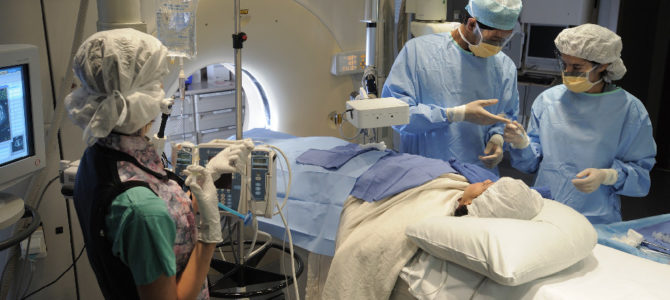Chimeric Antigen Receptor (CAR) T-cell therapy might be the cancer cure patients have been waiting for—if only the government would get out of the way. CAR-T therapy is a novel treatment that trains the body’s immune system to attack and kill cancer cells. It could be a game-changer for cancer patients, especially those who have run out of time and options: The National Cancer Institute says it might be effective at treating some late-stage cancers.
That is, of course, unless the government decides to interfere. In February, the Center for Medicare and Medicaid Services (CMS) issued a National Coverage Determination (NCD) for CAR-T defining under what circumstances CAR-T treatment is available to Medicare patients. It limits CAR-T treatment to hospitals alone, forcing otherwise viable treatment centers out of the marketplace. This singular provision in CMS’s otherwise sensible proposition threatens to undermine the entire proposal.
On May 17, the federal government is expected to make the final decision on whether to restrict access to this treatment, a decision that has faced significant condemnation from Republican and Democratic members of Congress alike. At the start of May, a bipartisan group of 47 legislators urged administrators to refrain from imposing unnecessary restrictions on this miraculous cancer treatment. But, in a vain attempt to control the cost of the therapy, the regulations may move forward regardless.
CMS’s decision inadvertently eliminates competition and gives hospitals every incentive to keep their prices sky-high. CAR-T already costs an estimated $395,000 to $439,000 per treatment. With a dearth of providers caused by arbitrary government restrictions on who can offer this life-saving treatment, hospitals have the upper hand over patients, who might otherwise seek cheaper treatment at a different facility.
The hospital mandate perverts CMS’s commendable objective to cover cancer patients. While likely unintentional, it nevertheless awards hospitals both profits and exclusive treatment rights. This will no doubt exacerbate costs.
Unfortunately, CAR-T is also hitting the market at a time health care is becoming less affordable for ordinary Americans. A major new survey released on May 2 by the Los Angeles Times and the Kaiser Family Foundation showed that the cost of health care continues to rise dramatically. Over the last 12 years, annual health insurance deductibles have nearly quadrupled.
Fewer families than ever have the extra funds to cover the cost. Four in 10 Americans say they don’t have enough money saved to meet their deductible. This is especially true for people with serious medical conditions, like heart disease, diabetes, and, yes, cancer. These Americans are most likely to have trouble paying astronomical medical bills. They report skimping on medication or forgoing other necessities—like food and clothing—to afford health care.
This is despite government interventions, like the Affordable Care Act, that promised to make health care cheaper. The government hasn’t delivered on its promises. It’s only succeeded in making things worse. Americans need free-market solutions to spiraling health care costs. Boosting competition among hospitals will improve health systems, making treatments more accessible, while prices will fall.
Policymakers must eliminate the moral hazard and perverse incentives that the hospital mandate creates. This reorients the incentive structure by allowing drug manufacturers to produce the supply to meet the demand, instead of attempting to manipulate the system.
With treatment as new as CAR-T, there are undoubtedly ways to improve and streamline procedures in order to reduce costs. The way to do that is to allow a variety of different treatment centers into the marketplace to compete against each other for patients. Reducing the government red tape is a necessary first step.
Attempts to regulate health services and control the costs of treatment always backfire, inflating the cost of health care and making the problem worse. The solution is to remove arbitrary restrictions and let the free market take its course on CAR-T therapy.
For millions of Americans suffering from cancer, CAR-T is the answer to their prayers. Let’s not place arbitrary and counterproductive restrictions on where they can seek this miracle treatment. CMS ought to rethink its decision to restrict CAR-T treatment to hospitals only. After all, if it tries to control the price of CAR-T treatments through government regulation, it will, invariably, fail.








